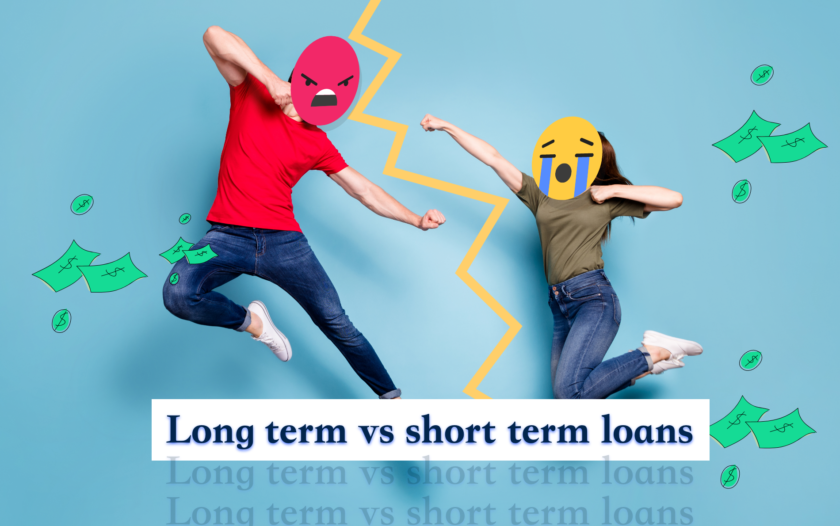What is the Difference Between Long-Term and Short-Term Loans?
About Trevor
Trevor Mahoney is a financial services writer and content creator based out of Los Angeles, California. He holds a Bachelors of Science in Finance from Santa Clara University. In his free time, he enjoys hiking and lounging on the beach.
Read full bio
At a Glance
When considering different forms of debt, you have likely seen both long-term and short-term loans. However, short term vs. long term financing differs in a number of key ways, making each type right for certain people but not for others. Learning about the different types means a person can make a more educated borrowing decision.
In this article, you’ll learn:
What is a short-term loan?
In most cases, short term loans allow you to borrow a loan that has a repayment period due within a year. The specific time can vary greatly, with some short-term loans such as title loans having repayment periods of just 30-days on average, but the cut off for short-term loans sits at a year.
For the majority of short-term loans, a credit check will be required that helps determine the interest rate a lender offers. However, short-term loans will usually come with a higher interest rate due to the short tenor of the loan.
What can short-term personal loans be used for?
Most short-term loans are used for quick cash needs as opposed to major needs. This is mainly due to the fact that short-term loans often have smaller borrowing amounts due to the shorter repayment period. Most short-term loans will range from a couple hundred dollars to potentially tens of thousands.
Pros and cons of short-term loans
As with all forms of debt, there are a number of benefits and drawbacks that should be considered prior to taking funds out. Some of the more notable pros to borrowing a short-term loan include:
- Quick access to cash and short processing periods
- Plenty of borrowing options to consider
- You will not be making repayments for years to come
While the above benefits can certainly make taking out a short-term loan enticing, there are a few drawbacks to keep in mind before making your decision. Most importantly:
- Short-term loans often have higher interest rates than standard loans
- There may be hidden fees to make up for less time interest is being charged
- Short-term loans are notorious for leading to debt cycles
Related: Possible Risks of Short-Term Loans
What is a long-term loan?
When looking at a long term loan vs. short term loan, the primary difference is the tenor of the loan. For this type, loans are often repaid over the course of a year but can be as long as ten years for some loan types. These loans often come with larger loan amounts, potentially up to $100,000 depending on your credit score and history.
Compare: Best Long-Term Personal Loans
How can you use a long-term loan?
In looking at short and long term loans, the purpose also tends to differ. Long-term loans are usually used for larger expenses, such as medical payments or weddings, due to the larger amount a borrower is offered. The majority of long-term loans are also unsecured, whereas most short-term loans are secured.
Pros and cons of long-term loans
Long term vs. short term loans do not differ drastically in their pros and cons, but there are a number of benefits and drawbacks to consider. Starting with the reasons a borrower should consider a long-term loan, the most notable factors include:
- Higher borrowing amounts than short-term loans
- Lower interest rates than most short-term loans
- A variety of lenders offer long-term personal loans
However, there are a number of drawbacks to long-term loans as well that you need to keep in mind. Consider factors such as:
- You are committed to the debt for a longer period of time than with a short-term loan
- Long-term loans may have additional fees or charges
- Longer terms mean you are paying interest over a longer period of time
Short-term vs long-term loans
Understanding the differences between a short term loan vs. long term loan can be complicated, but the below table highlights the most important factors:
| Short term loans | Long term loans | |
| Tenor | Less than one year | Greater than one year |
| Amount | Up to $10,000 | Up to $100,000 |
| Interest Rate | As much as 300% | 6%-36% on average |
FAQs
Short term vs. long term loan interest rates are very different, making some people wonder if borrowing a smaller amount on a longer term loan is cheaper than taking out a short term loan. While this can be true in some cases, longer term loans can often come with prepayment penalties if you pay off the loan early that make it more expensive to pay off.
The decision of whether short term or long term loans are better depends entirely on what you need the loan for and how much you need. However, given the lower interest rate, if you qualify for a small sum of money on a long-term loan, it may be more cost effective than some short-term loan options.
Long term loans tend to be riskier for a lender as there is a great chance a borrower will stop payments, but it also means more monthly interest payments coming in. Provided a lender can verify that a borrower is a low-risk individual, they will likely prefer to offer a longer-term loan.









